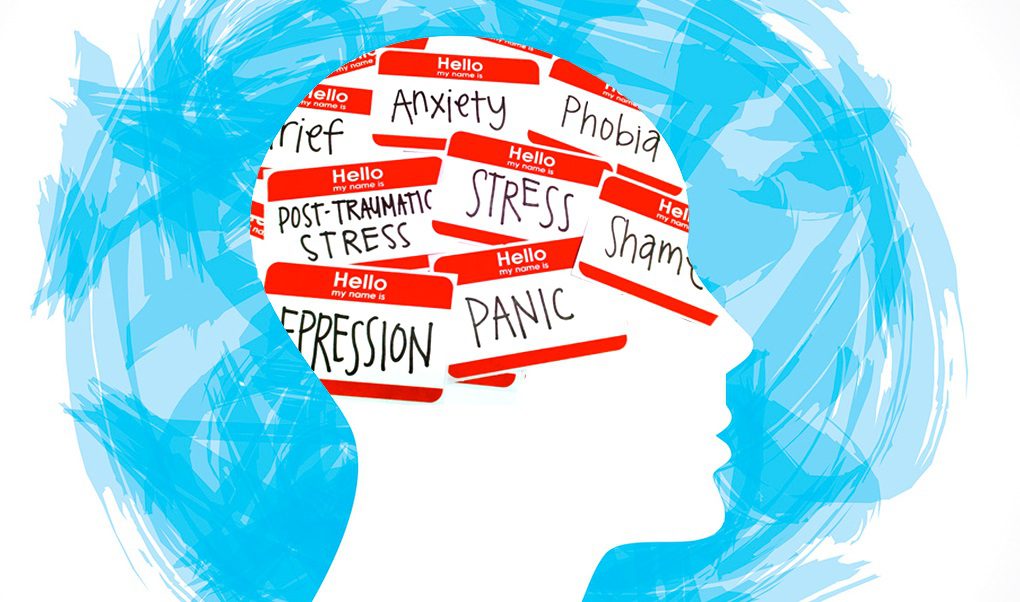Mental health isn’t just about disorders and illness. It’s also about your mood, how you deal with stress, and how you relate to other people. Whether you have been diagnosed with a serious mental health condition like schizophrenia, or whether you just need help managing your stress levels, the resources below will support your journey to mental wellness.

What is mental health?
Mental health is not just a concern for those who struggle with mental illness – it affects everyone. It includes your emotional, psychological, and social well-being, and it can affect your physical health too.
Mental health issues are very common in the US. The CDC estimates that 50% of Americans are diagnosed with a mental illness or disorder at some point in their lives.
If you are struggling with your mental health, know that it is not your fault. It is important to be able to recognize mental health issues so that you can get help. Many people think that what they are going through is normal/healthy and so don’t seek treatment.
If you need immediate mental health assistance, you can call the National Alliance on Mental Illness (NAMI) hotline at 800-950-6264 Monday-Friday 10 a.m.-6 p.m.
There are many types of mental illness:
- Anxiety Disorders
- Attention-Deficit/Hyperactivity Disorder
- Disruptive Behavioral Disorders
- Depression and other Mood Disorders
- Eating Disorders
- Personality Disorders
- Post-Traumatic Stress Disorder
- Schizophrenia and other Psychotic Disorders
- Substance Use Disorders
Learn about the different kinds of mental illness.
Other factors that can affect mental health:
- Stress: Do you feel stressed all the time? Here are Five Things You Should Know About Stress
- Season: Do you feel down in the winter months? Find out about Seasonal Affective Disorder
- Sleep: Are you getting a good night’s sleep every night?
- Loneliness and isolation: Do you have people you can turn to?
How can I improve my mental health?
Treatment will vary depending on the severity of your mental health condition. Remember that you can always talk to your primary care provider about any mental health concerns you have, no matter how serious they are. Check out these tips on how to talk to your doctor about mental health so that you can make the most of your visit.
If you just feel slightly depressed or overwhelmed by stress, try these self-care techniques that you can do on your own:
- Meditation: Try this 5-minute breathing meditation on YouTube to help center yourself.
- Yoga: Follow along with this or another yoga exercise on YouTube to help build strength and focus.
- Art therapy: Try one of these 37 art therapy techniques for de-stressing.
- Other relaxation techniques: Find out more about the benefits of these kinds of relaxation techniques.
If you have (or suspect you might have) a mental disorder, start here:
- First, you need to understand your diagnosis. Talk with your doctor about how they arrived at your diagnosis and what it means for you.
- Next, look at your treatment options. There are many types of treatments available, including medication, therapy (counseling), social support, and education. Work with your doctor to determine what is best for you.
If you don’t have a doctor, consider scheduling an appointment at FIGHT’s Diana Baldwin Mental Health Clinic.
More mental health resources
- Mental Health: This Medline Plus page gives a summary of mental health and links you to a variety of resources.
- National Institute of Mental Health: This federal agency conducts mental health research and provides news and events related to mental health.
- National Alliance on Mental Illness: This national nonprofit offers guidance on how to lead a normal life with a mental illness.
- Mental Health Quiz: Test your mental health knowledge with this quick quiz from the CDC.